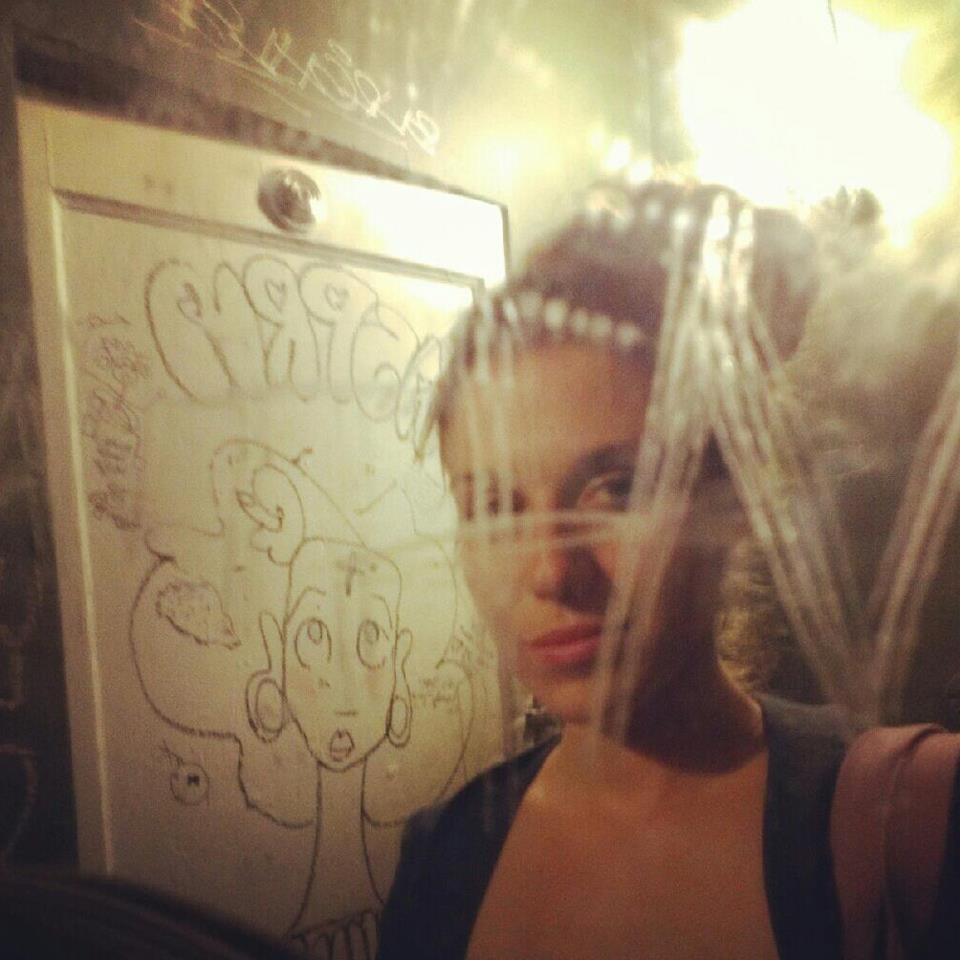The other day I came across a meme from Kid President imploring that “we need to live in a world with fewer selfies and more #otherpeoplies.”
This meme got me thinking about the word “peoplies”; it’s so damn fun to say. But then it got me thinking about my own photo-sharing experiences wherein the majority of my photos showcasing my mug perform better, meaning more ‘likes’ and comments, than the photos I take of other people, things I find interesting or places I travel to. I asked my boyfriend which of his photos perform well, and he echoed my experience. Think about your own pictures: Which photos do people respond to the best? Are they pictures featuring your sweet self or of something or someone you find interesting? Or take a look at your friends’ Facebook or Instagram feeds; do the people who fill their feeds with selfies have a higher following than others?
It makes sense that your friends and family would respond best to photos including you. Seeing your happy face is familiar, warm. It brings the viewer closer to you; it’s as if we are right there beside you. We are much more likely to hit ‘like’ on someone’s face over a photo of their garden, their dinner or the view from their hotel room (unless you’re a redonk photographer). Receiving more ‘likes’ means people “approve” of you, and who doesn’t want to feel part of the club? As frivolous as it sounds, since social media is a daily ritual in most people’s lives, receiving adulation from our peers is something we strive for more than ever. Everyone wants to be the cool kid. (And to those of you who don’t give a flying rat’s ass whether you get ‘likes’ or not, may we all learn your wisdom.)
Believe it or not, there is science to back this claim up.
In his New York Times’ article “For the Love of Being ‘Liked,'” writer Bruce Feiler talks about his owns experiences of seeking approval on social media. He discovered that “a growing body of research indicates how deeply our brains are wired to seek social approval. A study out of Harvard in 2012 showed that humans devote up to 40 percent of our time to self-disclosure, and doing so is as pleasurable as having food or sex.” As Feiler later points out: It’s not so much that we need approval; it’s that we don’t want to feel shunned, ignored, not important. He cites a study by UCLA psychology professor Matthew D. Lieberman where brain-monitored subjects felt pain “on par with breaking a leg,” when they were shunned during a game of virtual ball tossing. (I recommend reading the entirety of this fascinating article.)
But why must we encourage narcissism? Why are we perpetuating that young women, and some young men, are solely rewarded for their looks? Why are we not supporting our friends’ photos of their experiences? Though a photo of the subject’s face may be more aesthetically pleasing than that of their chicken coop or new bicycle, why don’t we reward them for sharing photos of what makes them proud? Intrigued? Happy? Sad? In a society that has become increasingly insular with the rise of emojis and Amazon delivery services, and more superficial with the glorification of talentless yet beautiful celebrities, why can’t we encourage non-narcissistic behavior? Why can’t we boost photography that shines a mirror on the world rather than the photographer?
We need to break the cycle of encouraging selfies and start promoting real-life experiences.
Consider this: The next time you’re thumbing through your Instagram or Facebook feed, and you see a photo of someone’s dinner they made and are proud of, or of the person’s cousin who just got married, or of a tiny bug the photographer found interesting, consider hitting ‘like’ on it too. Though it may not be the most beautiful photo you’ve ever seen, let your friend or family member know through your ‘like’ that they’re more than just their face- they’re a accumulation of moments and adventures.


8 Comments
[…] Originally appeared on my blog, Hipstercrite.com. […]
[…] Originally appeared on my blog, Hipstercrite.com. […]
[…] Originally appeared on my blog, Hipstercrite.com. […]
[…] Originally appeared on my blog, Hipstercrite.com. […]
[…] "We need to break the cycle of encouraging selfies and start promoting real-life experiences." http://www.hipstercrite.com/2015/08/18/why-we-should-like-experiences-not-selfies/ […]
[…] Replied to a post on http://www.hipstercrite.com : […]
[…] Originally appeared on my blog, Hipstercrite.com. […]
[…] thoughts on why we should like experiences, and not selfies, was particularly interesting to me. The idea of appreciating experiences over things (or selfies!) […]